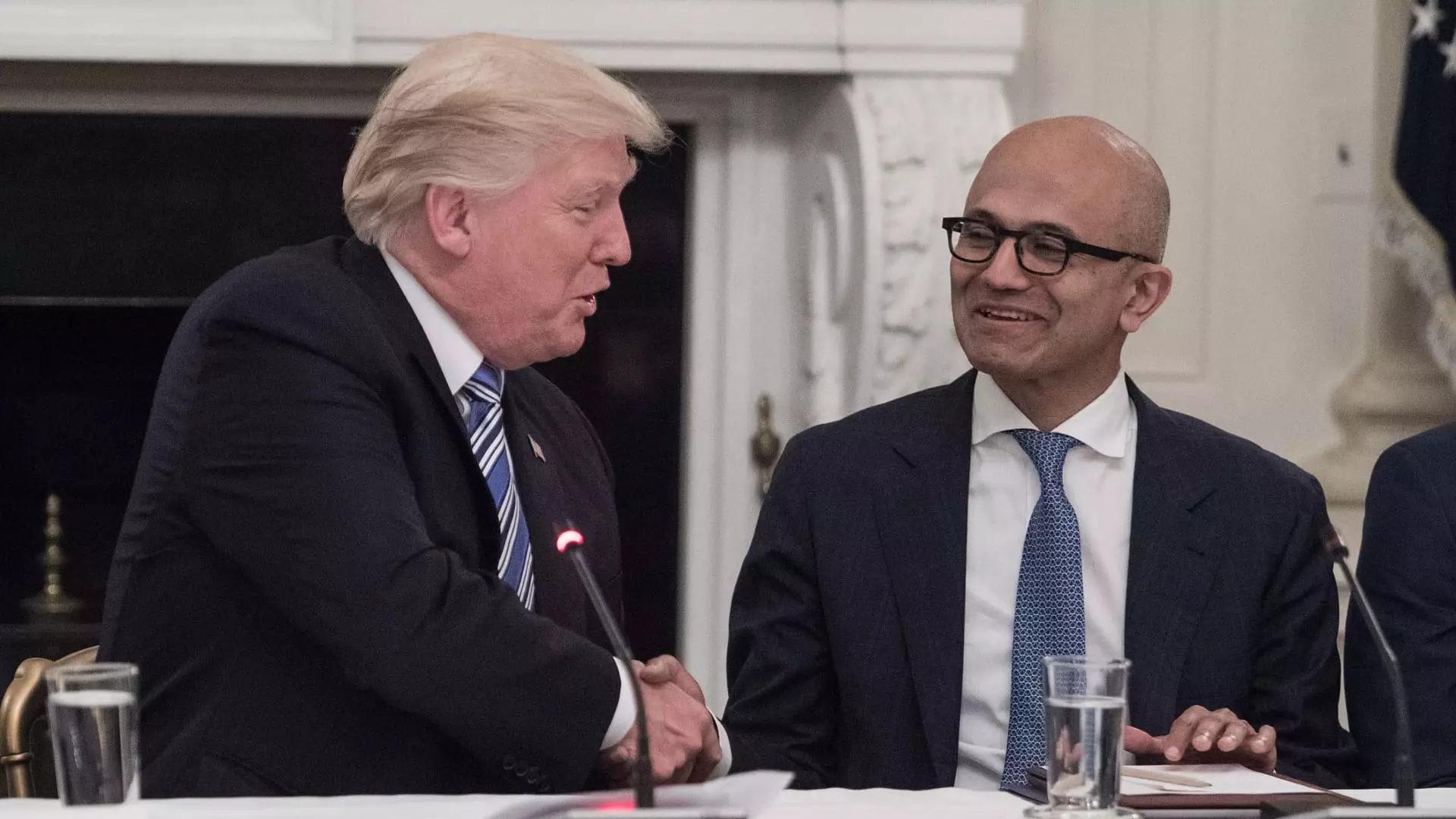In a surprising turn of events, major players in the technology sector, including Microsoft, Google, and Meta, have announced significant financial contributions to President-elect Donald Trump’s inauguration fund. Each company has pledged $1 million, reflecting a strategic decision to align with the incoming administration. This collaboration underscores a marked shift in the political landscape of Silicon Valley, which has often been perceived as leaning towards Democratic ideals in recent years. As these tech giants navigate the complex waters of political affiliations, their motivations may intertwine with the broader narrative of influence and policy direction, particularly regarding artificial intelligence and regulation.
Microsoft’s financial support is noteworthy, not only for its value but also for its historical context. The company previously contributed $500,000 to Trump’s first inauguration, mirroring its support for President Joe Biden’s inauguration. This trend of bipartisan financial backing raises questions about the tech industry’s pragmatic approach to governance. Corporate contributions can often be seen as investments in favorable policies that may ultimately benefit the companies financially. As political environments become increasingly polarized, the willingness of these companies to contribute to both sides of the aisle indicates a calculated strategy to maintain equitable influence over policy discussions.
One of the primary motivations behind these contributions may revolve around artificial intelligence (AI) development and implementation. With promises from tech leaders that the U.S. should adopt an aggressive international strategy to enhance its AI capabilities, the contributions may signal a desire for favorable regulatory frameworks. Brad Smith, Microsoft’s vice chair and president, articulated the need for a smart international strategy to promote American AI innovations. As the U.S. competes on the global stage, tech CEOs have recognized the critical importance of having a supportive administration that nurtures domestic innovations while simultaneously shaping international standards.
Moreover, the relationships that these tech executives have fostered with Trump add another layer to the donations’ significance. Satya Nadella’s previous interactions with Trump on issues such as the potential acquisition of TikTok in the U.S. exemplify the blend of corporate interests and political engagement. Additionally, the advisory role of figures like Elon Musk signals a desire for ongoing dialogue between tech entrepreneurs and the government. This connectivity can lead to significant policy shifts that influence technology regulations, ethical standards, and funding for research in a rapidly evolving digital landscape.
As Microsoft and its counterparts bolster their ties to the Trump administration through financial contributions, the implications for the tech industry’s landscape are profound. By engaging with the forthcoming administration, these companies are not merely offering monetary support but are actively seeking to shape the political agenda that governs emerging technologies. The future of AI, data privacy, and regulatory frameworks may hinge on these interactions, suggesting a new chapter where technology companies are pivotal players in the political arena. As they navigate this complex relationship, the broader impact on society and tech policy remains to be seen.

